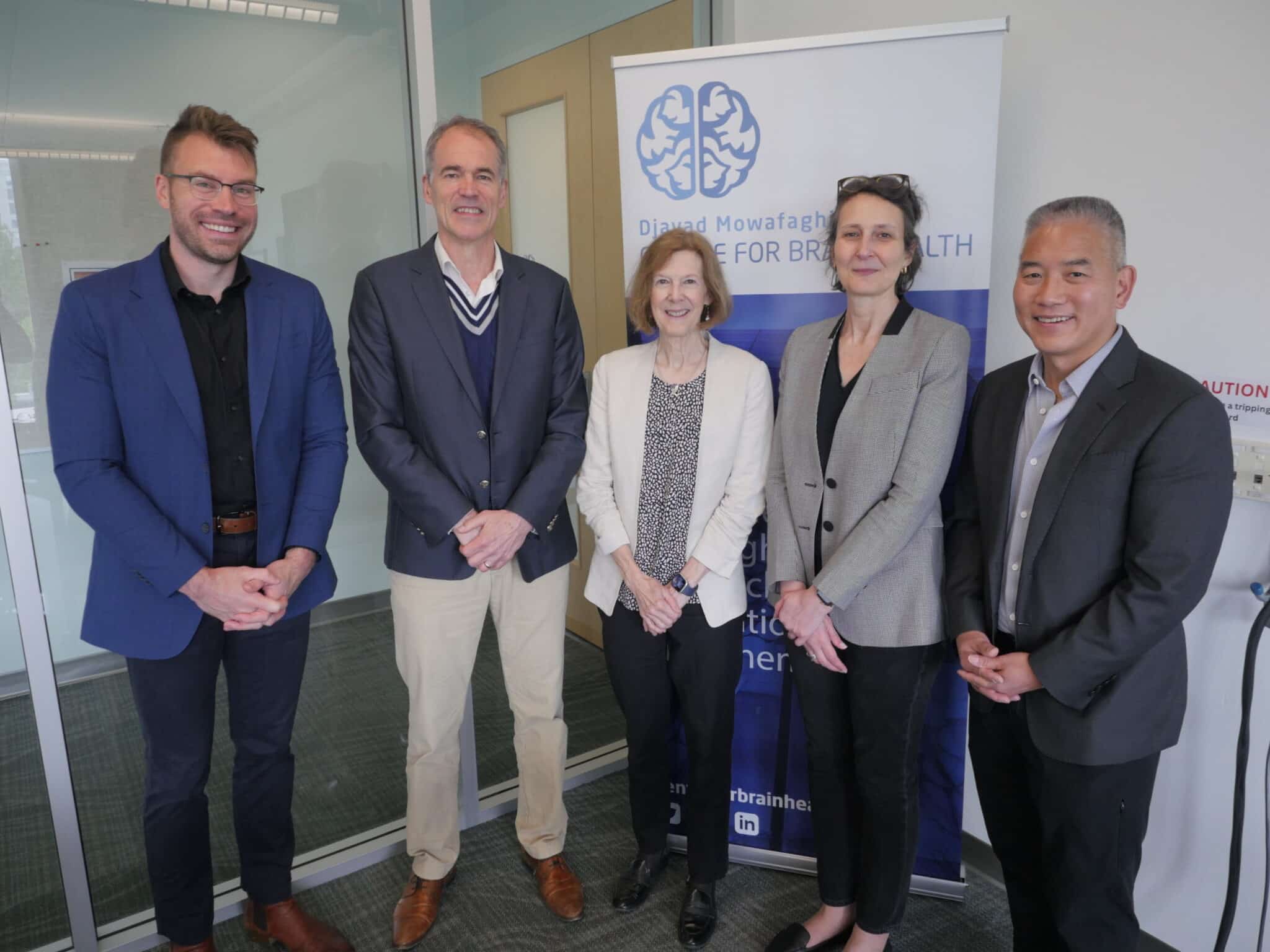UBC researchers awarded more than $6.5 million from Brain Canada to advance neuroscience research

VANCOUVER, BC, June 13, 2025 /CNW/ – UBC Faculty of Medicine researchers have been awarded more than $6.5 million from Brain Canada’s Platform Support Grants program to support two pioneering neuroscience research platforms. The funding will help accelerate discovery and foster open science, positioning Canada at the forefront of global brain and spine health innovation.
The two newly funded platforms are:
- International Spinal Cord Injury Biobank (ISCIB): Promoting Global Spinal Cord Injury Research Through Human Biobanking, led by Dr. Brian Kwon, which will expand access to vital human biological samples for spinal cord injury research, enabling researchers worldwide to advance treatments and improve outcomes for patients.
Total Grant Awarded: $1,866,750 - The University of British Columbia Genes, Cells and Circuits (UBC-GC2) Platform for Next-Generation Multiscale Brain Research, led by Dr. Mark Cembrowski, which will integrate state-of-the-art technologies to map brain function and connectivity from molecules to entire circuits, unlocking insights into complex brain disorders.
Total Grant Awarded: $4,845,000
“This platform represents a critical step toward advancing spinal cord injury research globally,” said Dr. Brian Kwon, a Professor in the Department of Orthopaedics and the Director of ICORD. “By providing access to high-quality human biosamples, we’re enabling researchers worldwide to develop and test new treatments that could dramatically improve quality of life for patients.”
“With the UBC-GC2 platform, we’re bridging the gap between molecular biology and systems neuroscience,” said Dr. Mark Cembrowski, an Associate Professor in the Department of Cellular and Physiological Sciences. “By integrating cutting-edge technologies, we’ll be able to study brain function at an unprecedented scale and resolution. This will not only advance our understanding of brain disorders but also open new avenues for treatments.”
These platforms exemplify UBC’s commitment to advancing neuroscience and fostering collaboration within and beyond Canada’s borders.
“The UBC neuroscience community is grateful for Brain Canada’s continued support,” said Dr. Lynn Raymond, Co-Director of the Djavad Mowafaghian Centre for Brain Health at UBC. “These investments will strengthen our capacity to deliver world-class research and transform brain health for people across the lifespan.”
Viviane Poupon, President and CEO of Brain Canada, emphasized the importance of these initiatives: “By supporting these cutting-edge platforms, Brain Canada is building the infrastructure that will accelerate brain and spinal cord research and foster open science collaboration. We’re proud to partner with UBC to drive innovations that will impact millions of lives.”
These two platforms are part of Brain Canada’s broader Platform Support Grants (PSG) initiative, which has already invested in numerous projects across Canada to empower researchers with shared tools, data resources, and collaborative opportunities. The full list of funded platforms will be unveiled later this month.
Brain Canada is contributing over $18 million in this year’s PSG program through the Canada Brain Research Fund (CBRF), funded by Health Canada, as well as matching donations from sponsors for a total investment of $36.8 million. By enabling access to cutting-edge tools and specialized skills beyond the reach of individual researchers, the PSG program plays a vital role in strengthening the research landscape.
“Research and innovation are essential to unlocking new treatments, improving recovery, and enhancing quality of life for people affected by brain health issues and injuries,” said the Honourable Marjorie Michel, Minister of Health. “Through the Canada Brain Research Fund, the Government of Canada is very pleased to support these new neuroscience research platforms, which bring together experts from different fields, integrate cutting-edge technologies and focus on improving patient outcomes.”
SOURCE Brain Canada



